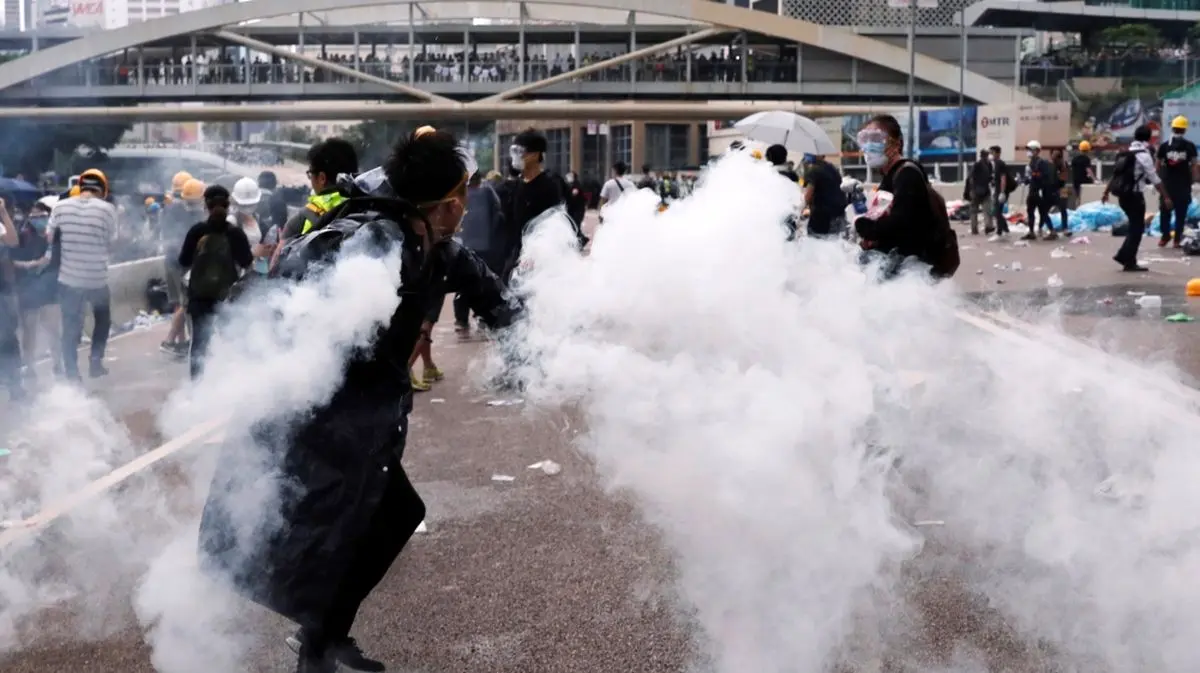Hong Kong’s Lam vows to restore stability, order after ‘chaos’

Hong Kong’s Chief Executive Carrie Lam has labeled the unrest that rocked the territory last year as “anti-regime”, lauding China’s imposition of a national security law for “restoring stability” in the city, and promising that she would make “constitutional order” a priority of her administration.
Lam made the comments in her delayed annual policy address, delivered before the Legislative Council or LegCo just two weeks after opposition legislators resigned en masse in protest against the dismissal of four colleagues, in what they said was another push by Beijing to suppress democracy in the territory.
Last year, opposition council members disrupted her speech, accusing her of acting as a puppet of Beijing.
She told the half-empty legislature that her government’s urgent priority was to restore the Chinese-ruled city’s “constitutional order” and pull its political system out from “chaos”.
Lam had postponed delivering her speech by more than a month saying she needed to go to Beijing for talks on how China could help with Hong Kong’s recovery.
She placed the blame for its economic troubles squarely on the protesters and their “unprecedented … anti-government acts” as well as “interference by external forces” while crediting the “proximity to the Mainland and the Central Government’s long-standing support” for what she predicts will be a quick rebound.
“The situation in Hong Kong has evolved to such a state that the Central Government had no alternative but to step in and take action,” she said.
Lam defends police action
Amid criticism from human rights groups of abuse of power and use of excessive force against protesters, Lam justified the “stringent law enforcement actions” taken by the police against “violent acts”, defending their actions as necessary to restore order.
“If there is evidence that someone violates the law, the offender must face legal sanctions regardless of his or her status or background,” she said.
“No one has any privileges under the law.”
China by-passed the LegCo and imposed a National Security Law on Hong Kong on June 30, punishing what it said were acts of secession, foreign interference and sedition with a life sentence and allowing mainland security services to operate in the territory for the first time.
The move prompted sharp criticism from the United Kingdom – Hong Kong’s former colonial power – and other Western countries, as well as the US decision to remove the territory’s special economic status and impose sanctions on Lam and some other government officials.
It also led to the departure of some pro-democracy activists and brought an end to the rallies that began in June 2019 and had already been curtailed by the coronavirus pandemic and police rejection of permits.
Lam also said the government planned to introduce a bill to enhance “oath-taking” by civil servants and conduct widespread public education “to enhance the understanding of the rule of law”.
Last year’s protests were triggered in part by fears in Hong Kong that Beijing was whittling away the freedoms guaranteed for at least 50 years when the city was returned to Chinese rule in 1997 under the “one country, two systems” framework.
Meanwhile, Lam hinted that another universal coronavirus testing programme could be introduced to contain the spread of the disease, following a recent spike in cases that has forced the authorities to tighten physical distancing restrictions.
She said Hong Kong was aiming for “zero infection” so that cross-border travel could be resumed as early as possible.
The government launched city-wide testing in September, with more than 1.7 million people tested.
Lam also said that some of China’s coronavirus vaccine would be reserved for the residents of Hong Kong, while noting that the city has already spent an equivalent of almost $40bn to fight the pandemic.
END
